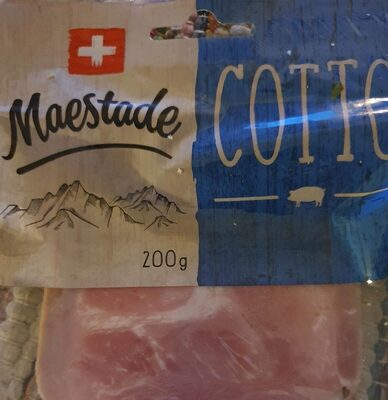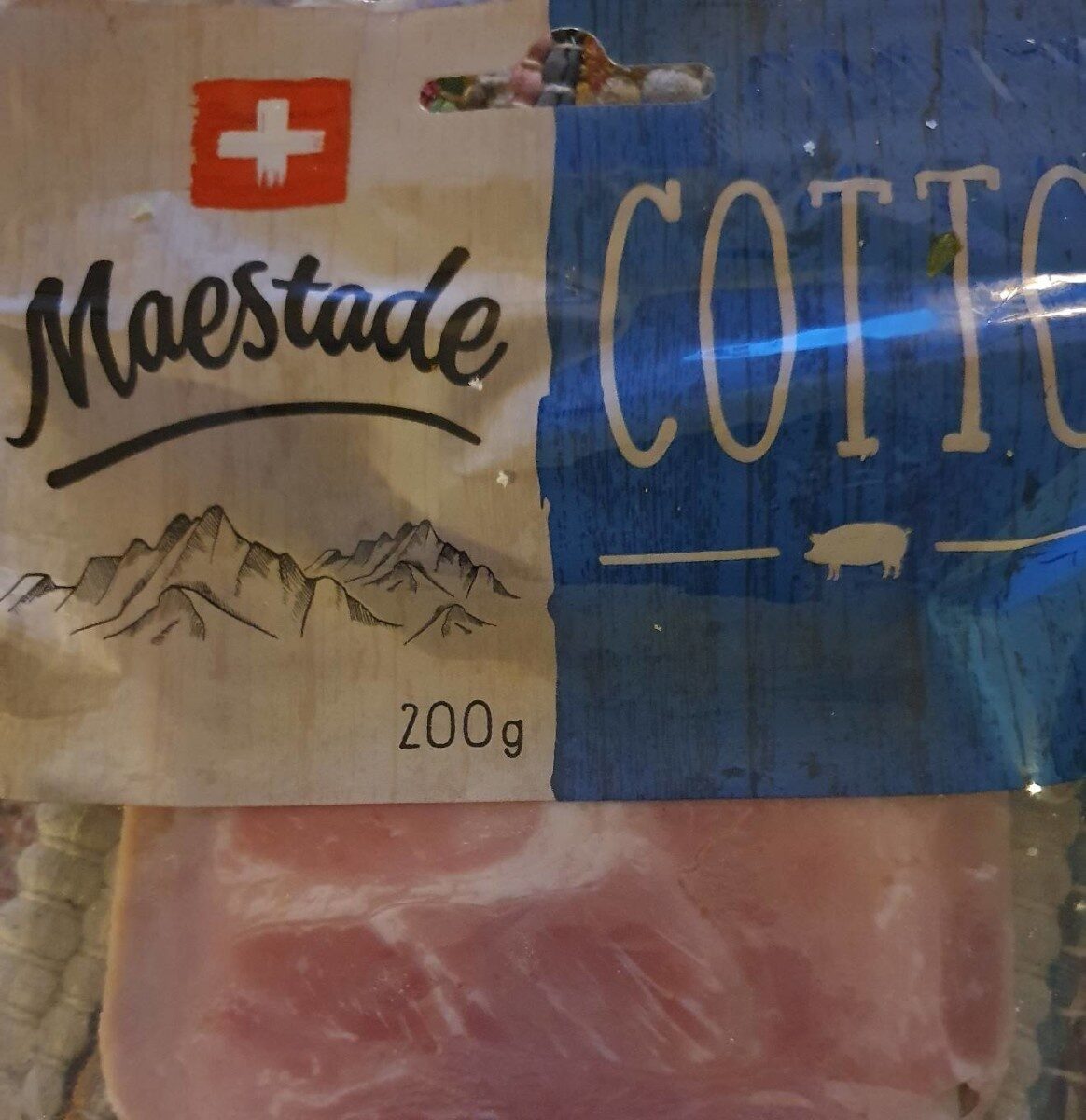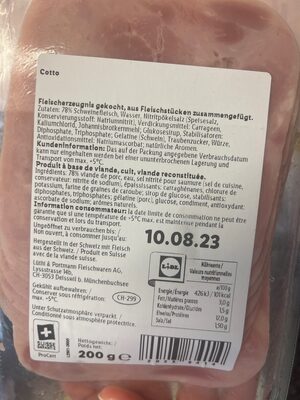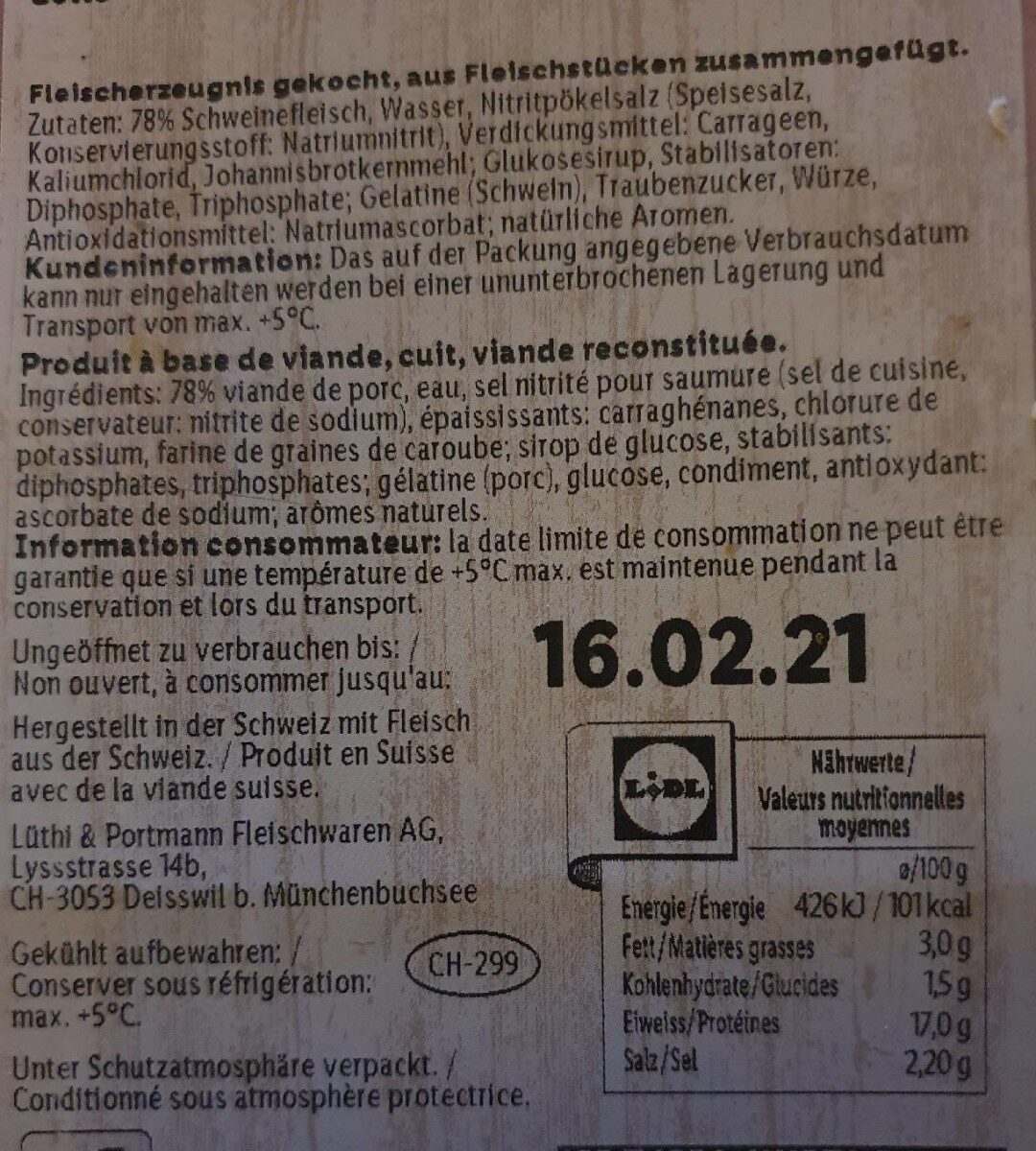Toastschinken - Maestade - 200g
Ambiguous barcode: This product has a Restricted Circulation Number barcode for products within a company. This means that different producers and stores can use the same barcode for different products.
×
This product page is not complete. You can help to complete it by editing it and adding more data from the photos we have, or by taking more photos using the app for Android or iPhone/iPad. Thank you!
×
Barcode: 20238414
Quantity: 200g
Brands: Maestade
Categories: Charcuteries, Jambons, Jambons blancs, Viandes et dérivés
Labels, certifications, awards:
Made in Swiss, Suisse Garantie
Traceability code: CH-299
Countries where sold: Germany, Frankreich
Matching with your preferences
Environment
Packaging
Transportation
Report a problem
Data sources
Product added on by openfoodfacts-contributors
Last edit of product page on by guezguez-majed.
Product page also edited by date-limite-app, foodrepo, gluten-scan, itsjustruby, kiliweb, prepperapp, roboto-app, teolemon, yuka.De9dF-a2AMgwHvDy0owT5xXhF8TFBtVcNHcsog, yuka.NKlTLt6nB8AbEcb815A39zypJO7vJ8d3QSAXog, yuka.WFAxYkFKZy8vY0V3bU1NL3BoTDhxdjFJNExxTFJFUzhOTkpJSUE9PQ, yuka.ZC8xZFNhUUNocWRRb05zWnBoSFA0czVreFlQMWNrRytMUEZPSUE9PQ, yuka.sY2b0xO6T85zoF3NwEKvlhRIWsLYnhv7NT_gwhPUnIqHKZbrWtZcyaz3DKs, yuka.sY2b0xO6T85zoF3NwEKvlkd8SoLhuQ3HJRfigWzX3N7UBcXneewtw4nRIqs, yuka.sY2b0xO6T85zoF3NwEKvllxWY-fU_Q-dHQT5sE2tyIyPcIXvXY1SwpiiGKo.











